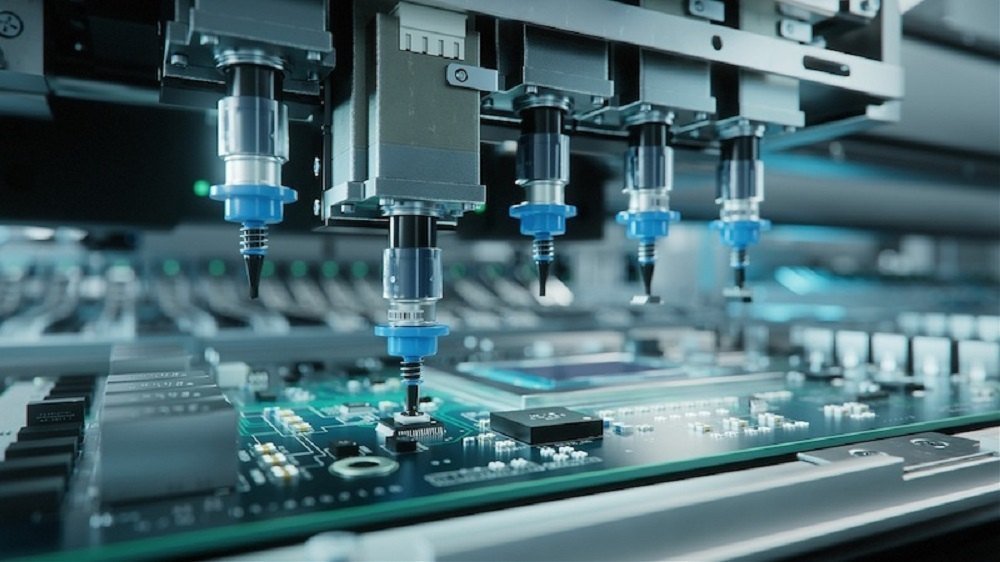Electronics is the backbone of today’s digital world—powering everything from smartphones and smart homes to advanced automotive systems and aerospace technology. With global demand for electronic devices and systems rising, the need for skilled professionals in electronics manufacturing is at an all-time high.
Our Electronics Manufacturing Process Certification program is meticulously designed to equip aspiring professionals with the practical knowledge, technical skills, and industry insights required to succeed in this rapidly evolving field. Whether you’re a diploma holder, engineering fresher, or career switcher, this certification is your gateway to a thriving career in electronics manufacturing.
📘 What You Will Learn
Throughout this comprehensive course, you’ll gain in-depth knowledge of the end-to-end electronics manufacturing process, from procurement to product delivery. Here’s a breakdown of what you’ll master:
🔹 1. Introduction to Electronics Manufacturing
- Overview of the electronics manufacturing industry
- Global and Indian market trends
- Understanding key stakeholders: OEMs, EMS providers, suppliers
🔹 2. Components and Materials
- Types of electronic components: Active, Passive, Electromechanical
- Component datasheets, part numbers, and packaging
- Sourcing and procurement best practices
- Storage and handling of components (MSL, ESD guidelines)
🔹 3. SMT (Surface Mount Technology) Process
- Solder paste printing: stencil design, printer operation
- Pick and Place machines: feeders, nozzles, component placement
- Reflow soldering: reflow profiles, oven settings, inspection
🔹 4. THT (Through-Hole Technology) Process
- Manual vs. automatic insertion
- Wave soldering and selective soldering
- Soldering defects and troubleshooting
🔹 5. AOI, SPI, and X-ray Inspection
- Principles of Automated Optical Inspection (AOI)
- Solder Paste Inspection (SPI)
- X-ray inspection for BGA and hidden joints
🔹 6. Functional Testing and Quality Assurance
- ICT (In-Circuit Testing) and FCT (Functional Circuit Testing)
- Debugging and fault-finding methods
- Introduction to quality systems: ISO, IPC, Six Sigma
🔹 7. Assembly and Box-Build Integration
- Cable harnessing, mechanical assembly
- Enclosure design and fitment
- Final assembly and burn-in testing
🔹 8. Packaging and Product Dispatch
- Packaging standards (ESD-safe, anti-static materials)
- Labeling and documentation
- Logistics and supply chain coordination
🔹 9. Quality Standards and Certifications
- IPC standards: IPC-A-610, IPC-7711/7721
- ESD control procedures and certifications
- RoHS, REACH, and environmental compliance
🔹 10. Industry 4.0 in Electronics Manufacturing
- Smart factories and automation
- Data analytics and MES systems
- Future of electronics production
🎯 Career Opportunities After Certification
Upon successful completion of the Electronics Manufacturing Process Certification, a wide range of job roles and career pathways become available across sectors such as consumer electronics, automotive, telecom, aerospace, defense, and industrial automation.
💼 Potential Career Roles:
- Production Engineer – Oversee SMT/THT operations and ensure line efficiency
- Process Engineer – Improve process flows and reduce defects
- Quality Inspector / Engineer – Ensure products meet IPC and customer quality standards
- SMT Operator / Technician – Run pick-and-place, reflow ovens, and inspection systems
- Component Engineer – Select and validate electronic parts for design and manufacturing
- Testing & Debugging Engineer – Perform board-level and system-level tests
- Manufacturing Planner / Scheduler – Coordinate procurement, production timelines, and resource allocation
- ESD/Quality Compliance Officer – Implement and audit compliance with industry standards
🏭 Industries Hiring:
- Electronics Manufacturing Services (EMS) companies
- OEMs (Original Equipment Manufacturers)
- Automotive and EV companies
- Defense and Aerospace manufacturers
- Consumer electronics brands
- Startups and innovation labs
💡 Freelancing & Entrepreneurship:
- Start your own PCB assembly unit
- Offer prototyping and small-batch manufacturing services
- Consulting in component sourcing and line setup
📜 Certification Benefits
- Industry-recognized certificate with employer credibility
- Practical exposure through case studies and assembly walkthroughs
- Job-ready skills aligned with today’s electronics industry
- Interview preparation and resume-building tips
- Access to expert faculty and mentoring

